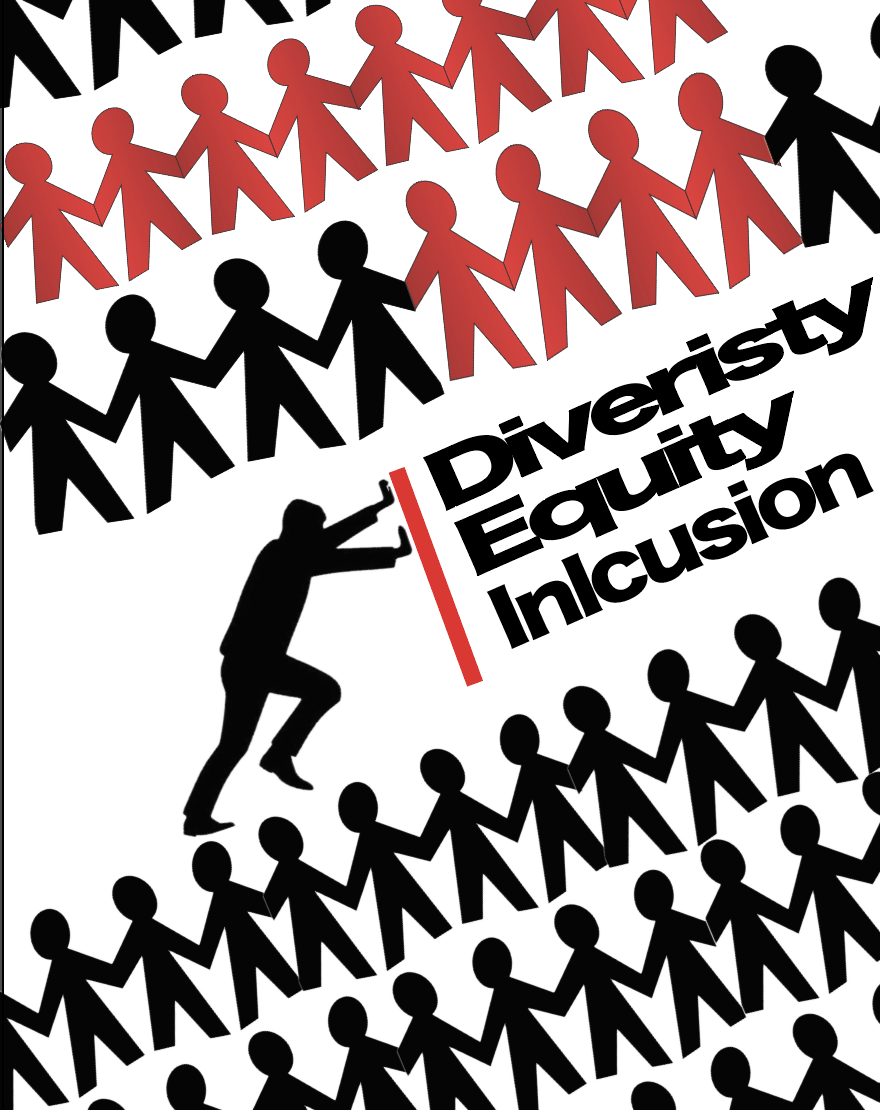On his first day in office, President Donald Trump signed an executive order terminating all mandates, policies, programs, preferences and activities related to diversity, equity and inclusion and accessibility. It also required federal agencies to report a list of all employees in DEI positions to their Office of Management and Budget Director within 60 days.
Daniel Aaron, an associate professor of law at the University of Utah, discussed the pressure that DEI has faced on college campuses due to lawsuits before the executive order. Many of these lawsuits were based on claims that admissions programs are discriminatory.
“The one big victory that those lawsuits secured was the decision in Students for Fair Admissions v. Harvard in which the Supreme Court invalidated Harvard University’s partially race-based admission system,” Aaron said. “And that was a DEI initiative as part of affirmative action to kind of increase racial diversity on Harvard’s campuses.”
Aaron said that presidential executive orders only have so much authority, which means they can only do so much to restrict DEI, especially when it comes to private institutions such as universities.
“The University of Utah likely does take some federal financial assistance. At a minimum, the students take federal financial assistance as part of loans,” Aaron said. “And so, there is the ability to apply anti-discrimination laws to our campus.”
Though those anti-discrimination laws on campus could be applied to college campuses, one could argue that DEI is built into federal law through things like anti-discrimination laws.
“One thing the Trump administration could try to do would be to reinterpret civil rights law so that anti-discrimination actually prohibits the efforts to address racial bias,” Aaron said. “So, ultimately, these institutions of higher learning do have a responsibility to ameliorate racial and other forms of bias.”
The U is an R1 institution, which means it has gained the highest level of research activity according to the Carnegie Classification of Institutions of Higher Education. The U researches topics such as addressing bias in education, addressing racism in health and addressing various forms of inequity, which Aaron described as topics the administration doesn’t like. The National Institute of Health attempted to freeze funding for DEI-related research earlier this year, but the order has been preliminarily blocked.
But Aaron argued that DEI is something that is within federal law, which would mean that the Trump administration would have to go through Congress to attempt to amend laws to eliminate civil rights protections. Aaron said one thing the Trump administration might do to reduce litigation is target a more narrow set of programs. For example, scholarships that include a direct preference that aren’t required by civil law.
“I think one of the really interesting things about these executive orders is that they run against a lot of law and are likely to continue to face legal challenges, which makes me think that the point of some of these orders and provisions within the orders might not be [for] a legal effect. Instead, it might be to cause fear,” Aaron said. “Here is an attempt to discredit DEI, spread fear about it and ultimately to undermine public support for DEI.”
Aaron added that there appears to have been some success in instilling fear of DEI initiatives as shown in recent polling data.
“When everyone removes DEI from their websites, that suggests fear. And it upsets the people in that institution,” he said.
U Political Science Professor Matthew Burbank discussed the complications that could come from the directive in federal workplaces.
“That sort of indiscriminate firing of lots of people is problematic, because generally, the reason agencies hire those people is they have a job for them to do,” Burbank said. “So the question is, who is going to be doing that work?”
“And again, even for the president, at some point, he’s going to say, ‘we need to do x,’ and somebody’s going to have to say, ‘we don’t have anybody who can do that because we issued this order firing these people, and we don’t have anybody to do these sorts of things,’” Burbank added.
But, Aaron said public support could help tip the scales back in DEI’s favor.
“Because if people don’t talk about DEI or support it, then ultimately the law is going to change and then it won’t be legal anymore,” Aaron said. “So, it’s very important to value the public support that has been built over the years for DEI and not to squander that.”




